
وبلاگ سپهران | Airlines | Who Is a Flight Dispatcher
Who Is a Flight Dispatcher and What Are Their Responsibilities? In the complex and precise world of aviation, many professionals work behind the scenes to ensure every flight is safe, timely, and on schedule. One of the most important and perhaps lesser-known roles is that of the Flight Dispatcher. These specialists play a key role in managing flight operations, working closely with pilots to ensure safety and efficiency. In this article on the flysepehran blog, we will explore the responsibilities, duties, and significance of flight dispatchers and take a closer look at the skills and training required to enter this profession.

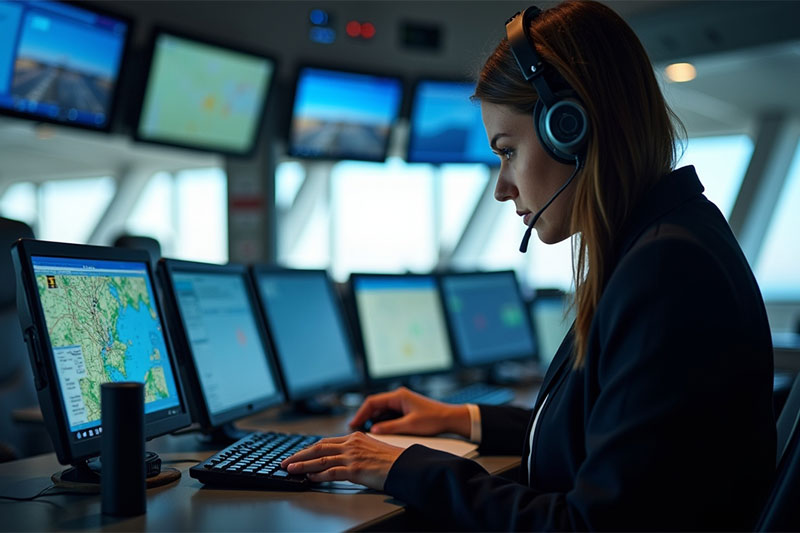
A flight dispatcher, also known as an operations officer, is one of the most essential members of an aviation team. They are responsible for planning, monitoring, and coordinating flights. Using meteorological data, aircraft technical conditions, aviation regulations, and airport capacities, the dispatcher designs and approves the flight plan before providing it to the pilot. Unlike the pilot who is in the cockpit and executes the flight directly, the dispatcher supports and monitors the flight from the ground. They play a crucial role in pre-flight and en-route decision-making and can decide on route changes or even flight cancellations in emergencies.
Within an airline’s operational structure, the dispatcher acts as a communication bridge between the pilot, technical teams, air traffic control, and operations management. This position requires specialized knowledge, extreme accuracy, and the ability to quickly analyze information, all of which are vital to the safety and efficiency of flights.
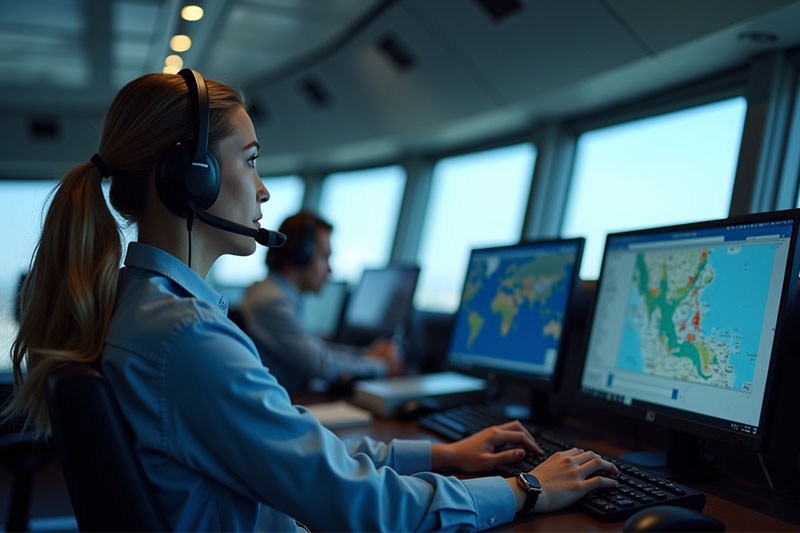
In aviation, the pilot is not the only one responsible for the success of a flight. The dispatcher or flight operations officer plays one of the most critical roles behind the scenes. Much like a backstage director, the dispatcher oversees everything from before takeoff to after landing.
Some of the dispatcher’s key duties include:
Flight Planning: Determining the exact flight route, reviewing aeronautical charts, calculating fuel requirements, and selecting the appropriate flight altitude.
Weather Analysis: Assessing weather conditions at departure, destination, and along the flight route; predicting weather risk such as storms, turbulence, or icing.
Coordination with Pilot and ATC: Providing the flight plan to the pilot, discussing potential scenarios, and obtaining necessary clearances from control authorities.
Monitoring the Flight: Even after takeoff, the dispatcher tracks the flight’s progress and provides alternatives in case of unusual conditions.
“Dispatchers are the real decision-makers; they ensure safety on the ground so that the pilot can focus solely on flying in the sky.”
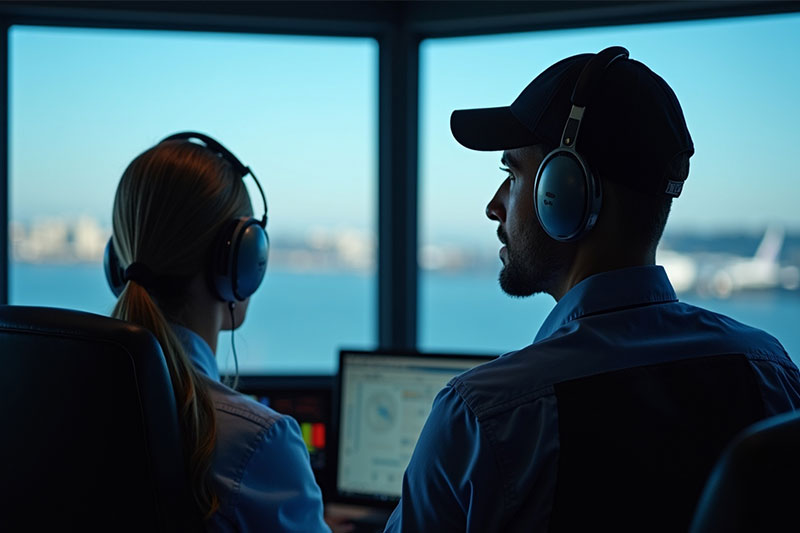
Registration for the Dispatch Course
This job isn’t limited to theoretical knowledge. A dispatcher must be intelligent, precise, and quick-thinking. Imagine a situation where a storm suddenly forms en route, or the destination airport is unexpectedly closed. In such scenarios, the dispatcher must react immediately.
Crucial skills for a successful dispatcher include:
Mastery of Meteorology: A thorough understanding of weather conditions and the ability to interpret meteorological charts.
Quick Decision-Making: The ability to choose the best course of action during emergencies.
Effective Communication: Professional communication with pilots, controllers, and other flight team members.
Familiarity with Navigation Systems and Aircraft Equipment: Understanding how systems work to design a safe and efficient route.
Technical English Proficiency: Most aviation documents and international communications are in English.
The relationship between the pilot and dispatcher is similar to the cooperation between a captain and a navigator on a ship. They make decisions together, exchange information, and jointly guide the flight to its destination. Contrary to common belief, the pilot alone is not responsible for route planning or flight decisions. With analytical insight and real-time information, the dispatcher complements the pilot. In fact, in some countries, international regulations state that the dispatcher shares equal responsibility with the pilot in making flight decisions.
“A successful flight is the result of mutual trust between the sky and the ground.”
You might imagine the dispatcher’s job as a typical office job with regular hours, but the reality is quite different. Flight operations run 24/7, and dispatchers must always be ready.
A typical dispatcher’s day includes:
Reviewing weather bulletins at the start of the shift
Designing the flight route and preparing fuel and loading forms
Communicating with pilots and sending flight plans
Continuously monitoring active flights and responding to possible emergencies.
Submitting the final flight report after landing
Although the job can be mentally demanding, it is also one of the most exciting and impactful roles in the aviation industry.

If you find this profession appealing after reading this article, you should know that becoming a dispatcher requires specialized training. In both Iran and around the world, training programs are offered that include theoretical courses and hands-on internships.
Enroll in accredited aviation training institutions.
Complete specialized courses in meteorology, navigation, and flight regulations
Pass the Civil Aviation Organization’s exam and obtain certification.
Intern with airlines and gain practical experience
In terms of career prospects, dispatchers can work for airlines, airports, flight operations centers, and even international organizations such as ICAO.
“If you’re looking for a job that blends science, decision-making, responsibility, and excitement, flight dispatching is one of the best choices.”
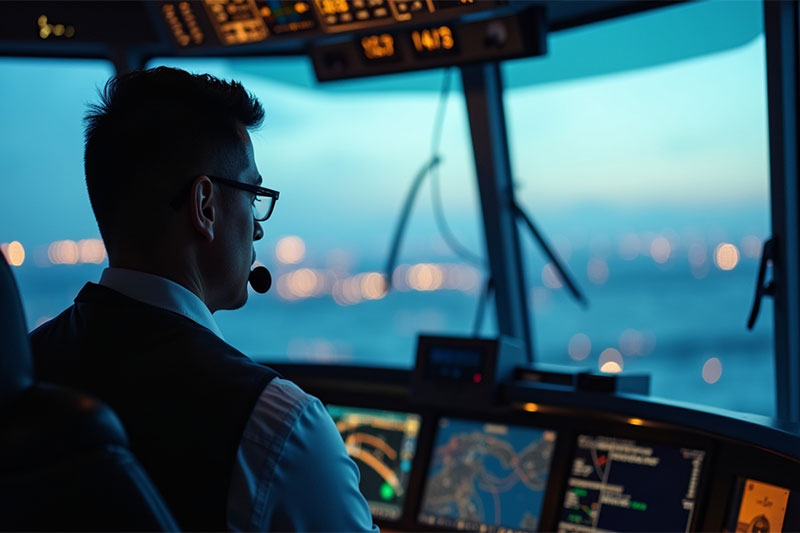
Dispatcher as a co-decision maker with the pilot
Accident prevention through informed decision-making
Helping to reduce delays and fuel consumption
Required training and certifications
Accredited training programs (in Iran or abroad)
Official licenses and exams for dispatchers
The role of the Civil Aviation Organization and international bodies
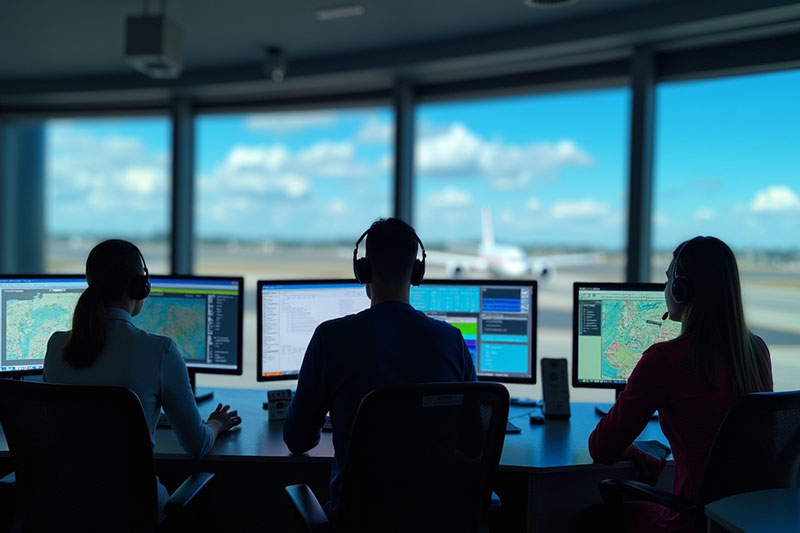
Now that you’re familiar with the fascinating world of flight dispatchers, let’s go back to the initial questions: Who designs the flight route? Who ensures the flight’s safety from behind the scenes? The answer is clear: the dispatcher.
This crucial role not only contributes to the technical execution of flights but also ensures the safety, efficiency, and peace of mind for both crew and passengers. So next time you board a plane, remember that the success of that flight owes much to the person tirelessly working in the operations room, the flight dispatcher.
If you’re intrigued by this path, now is the best time to start. An exciting, challenging, and promising career awaits you!